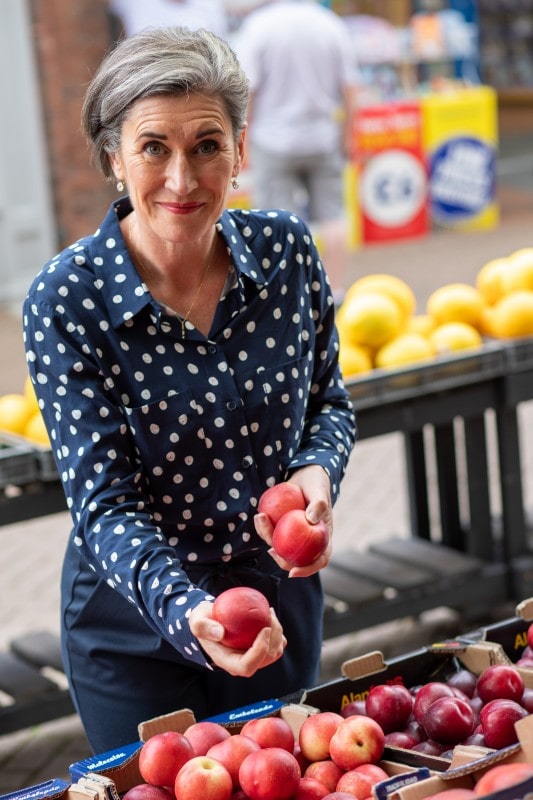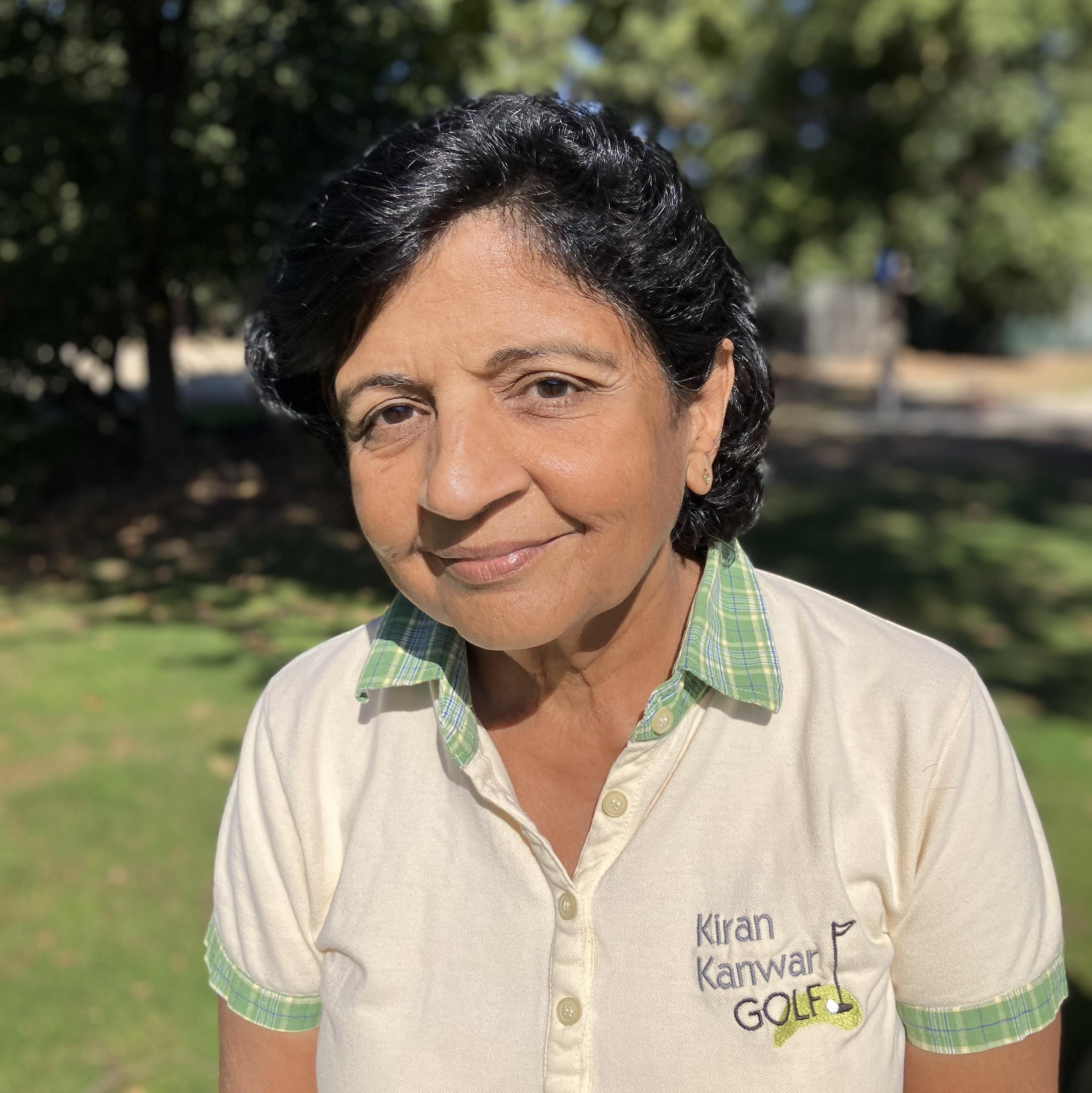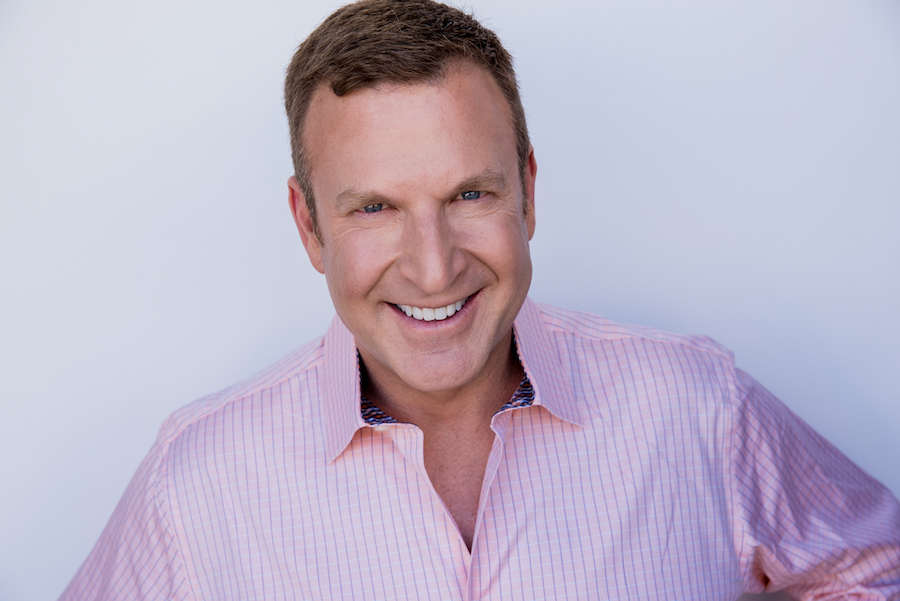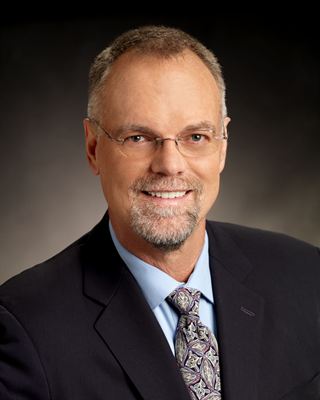
Fats 101 – Wendy Hill
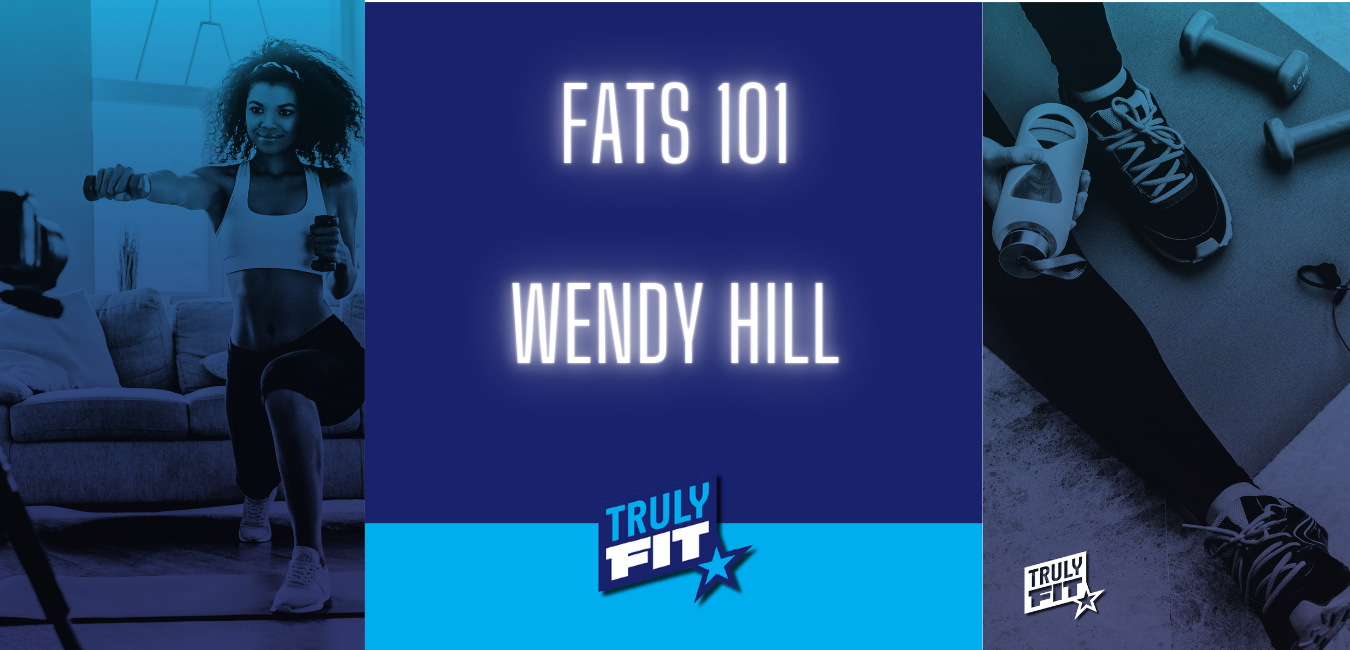
Guest: Wendy Hill
Podcast Release Date: 10/18/2021
Welcome to Trulyfit the online fitness marketplace connecting pros and clients through unique fitness business software.
Steve Washuta: Welcome to the Trulyfit podcast I am your host, Steve Washuta, co-founder of Trulyfit and author of Fitness Business 101. On today’s podcast, I speak with Wendy Hill. Wendy Hill considers herself a food-loving nutritionist and a female hormone expert.
That is her niche. She works with women who are going through perimenopause and menopause in the dieting realm, but today specifically, we’re going to be speaking about fats, the definition of fats, what exactly they do in our bodies the difference between polyunsaturated and monounsaturated fats, the difference between unsaturated and saturated, where we can best get our omega sixes and our omega threes?
Is there a particular ratio we should be looking for? Does it make a difference if we’re cooking our fats as opposed to ingesting them? Cold, and everything you can think about concerning fats, how they work on our body, how you eat them, where you get them why they’re important. And then even maybe general, things that are misunderstood or misconceptions about fats.
Wendy also talks about so it’s a fantastic conversation. Again, when he has his own podcast called Are you really going to eat that which is fantastic. And one of our latest episodes specifically talks about polyunsaturated fats, and it’s a great one.
Check it out. You can find Wendy @hillstartnutrition on Instagram, where you’ll find links to all of our content, including our podcast. But I also wanted to mention, I found it very fitting we get to release this podcast on October 18. Today, which is actually national menopause day, Wendy gets a chance at the end to expand upon her niche.
Why she decided to go that route and have their clientele again, she’s a menopause perimenopause expert, female hormone expert, how someone who’s naive, like me may know the signs and symptoms of someone entering these phases.
Why it is important for someone to know that. And it was great information to finish on. With no further ado, here’s Wendy. Wendy, thanks so much for joining the Trulyfit podcast. We talked a little bit on the front end, but why don’t you give the listeners in the audience a bio of you and what you do professionally.
Wendy Hill: Thanks, Steve. Appreciate that. So I’m well Wendy, my company is Headstart, nutrition, health, and wellness. And I’m particularly a female hormone expert, and helping women through the Maryport Perimenopause and beyond.
That was a mouthful, I should get that by now. I have a podcast myself, and it’s called Are you really going to eat that and that kind of gives you an idea of my style. I’m very much a food-based nutritionist. And I also have a membership called fabulous and female. And that’s fab female.co.uk.
Steve Washuta: Now you recently did a podcast talking about lipids and fats and how they played an integral role in the body. Can you explain to the audience from a layman’s perspective? What exactly are lipids and fats and sort of the basis behind what they do?
Wendy Hill: Yeah, sure. And it’s and it’s complicated. And I understand why people kind of get a bit confused. So I tongue in cheek called my podcast. Puffer so pu FA, and it’s not your winter jacket. I don’t know if that translates to the US. Do you call your like big puffy winter jackets? puffers?
Steve Washuta: You know what? Not always. But I do think that we know, that’s sort of a British term. So I do think that’s, I think it does translate. I think we,
Wendy Hill: yeah, good, good. Good. So it’s a bit tongue in cheek, but I think it is really confusing. So to break it down. Naturally, there are two main sorts of fats or lipid. Let’s start with lipids. So a lipid is a product, a substance that cannot be absorbed by water. It’s not you can’t What’s the word? And what water-soluble, that’s the word soluble. So it’s things like fats, its hormones, cholesterol, they’re not water-soluble.
That’s effectively where I think it gets confusing when you’re talking about fats in diets. So we have the puffers and mufflers, which I talked about in my podcast. So they’re polyunsaturated fatty acids, and monounsaturated fatty acids, a bit of a mouthful. That’s why we shorten it.
Earn saturated fats, or fats, these are the really good guys, these are the ones we want. And these basically have they all have a chemical structure, and they’re called unsaturated because they have at least one double bond. So a monounsaturated has one double carbon bond. And a polyunsaturated has more than one poly meaning many more than one double carbon bond. And that’s basically the only difference.
So that is unsaturated fat, and then a saturated fat has no double bonds. And the difference is is unsaturated these double ones make them kinky, and the saturated fats off or flat. And if you think about how they might stack up, and this is kind of how it kind of, sort of relates to me. If you think if you’ve got lots of kinky atoms to kink into a substrate, then they won’t line up, they won’t line up level.
And so these are things that are liquid at room temperature because everything’s not stacking up nice and evenly. Whereas saturated fats, they line up nicely and easily and they are more solid. So you’re thinking about things like butter would be kind of like an unsaturated would be saturated fat. And then unsaturated would be something like olive oil. Does that make sense?
Steve Washuta: It does make sense and just sort of repeat that. So we have the unsaturated fats, which break down into two categories, poly, and mono. And then we have the saturated fats, and you describe the differences between the unsaturated fats and saturated fats, but then there’s also a manmade third fat called trans fats. Is that correct? And how, and how exactly does that act in the body comparatively speaking to the other two.
Wendy Hill: This basically, it’s an alien, our body doesn’t understand it. So it is a case, another kinky one. And we created it scientifically, to change things that are solid into being more liquid. So if you imagine like old-fashioned module rain, this is a really good way of imagining it is, you know, my butter was solid, we couldn’t spread it. But margarine even if we have changed it into a kinky fat, but unlike unsaturated, which are naturally that way, these are chemically created, and actually the bond is on a different side.
It makes it kinky in a different way. And basically, our bodies just don’t like it, they don’t process it. And where you find trans fats now, mostly in the diet is in processed food. So it helps to have that kind of mouthfeel on foods. So it’ll help with a crumb texture on things like cakes, and things that help with the stability helps with stability because it’s chemically kind of stabilized.
Whereas natural fats are naturally a little bit unstable, they tend to, they can spoil quite quickly. Again, if you think about things like butter, it spoils very quickly. So, this kind of transport is a chemical way of making it more stable, making it easier to use. But actually, our body just doesn’t like it. It doesn’t understand it. It’s not part of our evolution. It’s a chemical substance, and our body just doesn’t process it in the same way.
Steve Washuta: Yeah, it seems to me that it is less than our foods, comparatively speaking to, let’s say, even 15 years ago, where trans fats seem to be everywhere. But I think you know, the word is out here and people know, and that the companies had no choice but to maybe shift their, their ingredients and their policies, because, you know, the consumer is a little bit more knowledgeable than they were 15 or 20 years ago. Do you find that’s the case? Yeah.
Wendy Hill: Yeah, definitely. I think I think you’re right in that, but I do think still, there’s a lot of them, we just don’t realize where they might be. But yeah, I agree. I think we as we learn more as, as we understand more, the more you’re reading that I talk about, you know, it’s very rare to have, but then there are brands out there that have to do the same thing, but they just packaging it up saying, you know, it’s got good heart health benefits.
It’s a healthy bread in a way that works like small gerade in the UK, with kind of transport but actually, it’s still not great. They’re still processing it. And ultimately, if you’re like I said, if fats, fats are very unstable, if you start processing them, you will be transforming them trans fats are transformed, you will be transforming them even if it appears to be you know, from an art Univ as a spread that says, you know, olive oil derived it still is it still will be predominately trans fats are just packaging it up better.
Steve Washuta: Yeah, we could probably do a whole podcast on this terminology that they use, in the food industry, we have the FDA, the Food and Drug Administration in America, I’m not sure what your equivalent is. But basically, there are all of these sorts of nuance phrases that you can use to describe things, and most of them are it’s very esoteric, you think you know what the definition is behind it, but you necessarily don’t it might say organic, but organic means something different than like, homegrown, which means something different than USDA organic, right? They all have different definitions.
I think you know that that’s a reason why I like talking about fats is that you’ll hear so many people say, Oh, this part of this fat-free, yeah, well, Coca Cola is fat-free, but it’s got 44 grams of sugar per can. So it doesn’t necessarily matter that it’s fat-free, because fats are good for us. If again, they’re the right fats, which I’m sure we’re gonna elaborate on, later on. So I do want to get into that. Omega sixes, omega threes, are considered important features of particular fats for our bodies. Can you describe what they are? What facet they are? And are what foods that they are in?
Wendy Hill: Yeah, sure. So I make three and Omega sixes are unsaturated Omega three and Omega six is the three and the six indicates where that first double bond is. So that’s from a scientific point of view. Now, we want we ideally, we want an equal amount of Omega three and Omega six. So these are what we call essential fatty acids.
I always remember this as if something It’s called essential. So written essential vitamins essential fatty acids, then what that means is, it’s, it’s essential that we eat them that we consume them in our diet, so we can’t make them or can’t make enough of them ourselves. So we need to consume them in our diet. Now Omega three, get, we get that in things like meats, poultry, in corn, and in corn oils.
Now, actually, that has a tendency to be pro-inflammatory. And actually, we get that in our diet quite easily. Because we do eat, you know, we do eat a lot, me and oils and things. So we tend to get that without really having to worry too much. And the one that we always talk about as nutritionists is omega three, which is the one that we’re always encouraging people to eat more of.
The reason is that omega-three tends to be anti-inflammatory. Now, it’s not as simple as that. It’s not just you know, all Omega six is a prime function, or omega threes are anti-inflammatory. And actually, when we talk about foods and nutrition, and we say, you know, it’s a good source of Omega three, it doesn’t mean it’s, that’s all the fat that’s in there it is, we always talk about kind of good sources.
We talk about trying to increase our omega three, just simply because we tend to get enough Omega six without having to worry about it. So it’s not that we should ignore Omega six, it’s just that generally the standard diet we’re going to get enough. And omega three isn’t what we concentrate on. So that’s things like oily fish, I am always talking to clients about eating more oily fish, and we have enough lovely energy at Smash, so salmon, mackerel, anchovies, sardines, and herrings. And those are our oily fish.
And ideally, if we can get three portions of those a week, then we should be eating, you know, a good quantity of Omega three, which is going to have brilliant anti-inflammatory benefits for the body. If you are vegan or vegetarian, you can get it from nuts and seeds, flax seeds are a really good source of it. And again, we talked about fluxes has been a good source of Omega three.
But actually, there is a lot more in sort of fish that oily fish is the big one that we’re always talking about. But it’s trying to get to evolutionary, we, we would have eaten probably one to one ratio of omega three to omega six. And it’s just the modern diet, where we consume considerably more protein, considering more animal products than we did in our heritage, were considered mere eating more or yours, you know, food, processed food is as cooked often quite high in Omega sixes as well.
That’s so readily available, we don’t have to do that foraging of nuts and seeds and things, we just don’t consume as much of it in balance as we used to. So that’s the area whereas a nutritionist, we’re always sort of focusing on increasing in the client.
I’m definitely kind of pro-increasing things rather than having to force people to decrease things, so encouraged me to add things to their diet will help them get them those sources of Omega threes, without them really having to think can’t have this can’t have that. If you encourage them to include something they will naturally exclude perhaps some of the things that are higher in Omega six,
Steve Washuta: I think that’s a great way to go about it. I’ve never heard that before. But it makes perfect sense that you don’t necessarily have to focus on the exclusion because by the nature of the amount of food one can consume as they start to include the better foods, they’re going to have to take something else away.
You would hope that, you know, naturally that they start to take the things away that that is less apt to help themselves to help their bodies. Exactly. I know that you know, you’re talking about these fish, and with more oily fish and the flax seeds and things of this nature. Now I have things like flax oil in my house, put a shot of it in my shakes.
But I’ve heard that cooking these heating these fats up like flax oils, and I’m not sure if it’s the same with all of the fats in let’s say the fish that we’re talking about with Omega three omega six that you lose some of those components or micronutrients even is that the case?
Wendy Hill: Yeah, so I mean, for me, if I was working the client, the first thing would be sort of asking is what you know what we’re trying to achieve. So if you’re trying to get better levels of Omega three, then you know is having oil on its own is the best way to do this.
Our body evolutionary wouldn’t have expected an MCT oil on its own. I mean, I know people who do the ketogenic diet, you know, have like keto coffee with MCT oil in there and it’s just like well, this isn’t how our body was designed to process these things. It was designed to process them in their kind of the whole form. So you know, flax seeds flax oil is extracted from flaxseed.
Why can’t we just have some flax seeds in the diet then we get into a fiber, which will then will stop this kind of run through because your body will be processing better for that dressing? You know, with things like lemon juice in it, which is going to be a stabilizer and you can have other foods in there. So it’s going to be easier to digest.
So I think my question would be, you know, what would why are we having get in just a pure? Or for what we trying to achieve? Is there a reason why we can’t just increase the Omega three naturally in our diet so that our body is better able to digest them?
Steve Washuta: Yeah, that’s great information. A really great way to look at this. I’m going to have a long-winded way to unpack this, this next question here, but you know, people, people talk about fats, sometimes as a bad thing, people who don’t know, right, and they say, Well, I’m eliminating fats from my diet, maybe it’s because there are nine, you know, calories in a gram fat as opposed to for carbohydrate, or protein or whatever a little bit of information they have.
I think this is what I call a part of Chesterton’s fence principle where they want to eliminate something but they don’t necessarily know how it works, right? You walk out, there’s two neighbors, that sort of parable, and there’s a fence and whenever I’m taking the fence down, it’s annoying me and the other neighbor goes, Do you know why the fence is up in the first place? Like, you can’t take it down until you know why, like, explain to me why it was up, somebody put it up for reason, I think we just need more information on why fats are good for us.
We already talked a little bit about the Omega three and Omega sixes in different roles. I know that your sort of wheelhouse is in the hormone area. Can you explain how exactly fats help our body? Whether that produces hormones or keeps hormones at a stable level? Whatever it does, concerning hormones?
Wendy Hill: Yeah, absolutely. So. So one of the key hormones that we I think would interest kind of the track your trainers and clients that fats, so fats, make cholesterol. And then, of course, we’re going oh, my God, we’re definitely not going to eat fat, if it makes my cholesterol high. But it’s just not as simple as that. So we need cholesterol to make certain hormones. And it’s about having a game the right talk, you know, omega threes, we’re talking about these good fats. Unsaturated fats is what we want to include in our diet.
They make key hormones that help us make the hike, androgens, so testosterone, and East helps us make estrogen. So there are you know, there are studies that show there’s a couple of interesting ones. I made a couple of notes for this.
There’s a study in 2012, I think it was that showed that if men reduced their fat intake, and we’re talking about good fat now, remember, so we’ve got over there kind of what the difference is between trans and stuff. And we’re saying, right, okay, I’m going to have some good fats in my diet, but they are more calorific. So I want to lose weight.
So, therefore, I’m going to cut them out. And the whole low-fat diet was a big thing years ago, wasn’t it, but actually, it’s showing that that reduces men’s testosterone levels, which is key, you know, women have testosterone as well, it’s key for the kind of get up and go, yes, it’s a sex drive as well.
But it’s I get up and go, it’s a, you know, I want to exercise as well, you know, testosterone frames that as well, if we don’t have enough fats, enough good fats in our bodies, then it can, it can affect the estrogen balance, so it can cause estrogen dominance.
Now, again, Amiga three also helps reduce inflammation. So if you have clients that are suffering from a lot of stress, they have a lot of cortisol, and increasing the Omega three can help reduce the inflammation in the body, which can help reduce those cortisol levels.
It’s on so many levels, that fat, it’s really important. And we just need to come away from that whole you know, calories number, it’s about creating a balanced diet. And you know, eating a wide range of foods and eating good quality, real food, where we will get that good quality fat to then drive those that have hormone regulation.
Steve Washuta: Yeah, and I think the last thing you said about so many levels is very important here, because it’s such an in-depth topic here, when but especially when we’re talking about how the macronutrients play different roles in our bodies. And we’ve had people on this podcast before, who were discussing, you know, calories in calories out, basically, right, the law of thermodynamics and why necessarily, that’s not the be-all end. All right.
That’s what, unfortunately, we were taught from the National Academy of Sports Medicine, the little bit of information. But that’s maybe that does factor in or certainly does somewhat in weight loss. But there’s more going on in the background, right. So a body’s essentially a machine and we have to make sure that all the other components are running properly, right in that machine.
Or else you can have 2000 calories a day of chocolate cake and I have 2000 calories a day of healthier food, and our bodies are not going to act the same way. Right. A calorie is not a calorie, just like a dog is not a dog, right? There are chihuahuas, and there are German Shepherds and they’re different and that’s the same thing with calories. There are certain calories that are providing more sustenance for our bodies, which in turn make it run better.
Wendy Hill: Yeah, absolutely. And I loved that episode, actually. Since that will need a new plan and was the thing I liked, you know what he said. And it’s true, you know, I believe in intuitive eating. And I think the food is amazing. It packages up stuff in a way that we want. So you know, lots of foods that are high in Omega-three will also be high in Vitamin E will be high in Vitamin K, Vitamin A, because they’re fat-soluble vitamins, because it’s about saying, Am I just eating a really wide range of foods, and that will satisfy my appetite.
I believe that, that our bodies that hunger drive, is because our body’s saying I need something more, I need something that you’re not giving me whether it be omega three, or whether it be C, and it’s driving us to consume food. But if we’re not consumed by food, then our body is still going to be hungry. It’s an amazing machine. And it does some wonderful things. And if you listen to it will often tell you what it needs.
Steve Washuta: Wendy, can you expand upon your niche a bit? How did you decide to get into your particular demographics and the route that you went?
Wendy Hill: I suppose Thank you. But I suppose in a way, it’s quite personal to me because I am in perimenopause and menopause. So you know, I’m fast approaching 50. So for me, it was a very much I now realized that I was probably experiencing symptoms at 40, and had a very stressful job at the time and not sleeping very well. Just put it down to that was how it was. And now with hindsight is a wonderful thing.
I now realize with extra training that that was what it was. So it was very much a personal thing. And for me, there’s, it’s, it’s so wonderful when you help somebody when you listen to a woman who just feels you know, she may have been to the doctors, and this is no criticism of you know, of GPS, but she might have been to the doctor’s feeling anxious.
You know, feeling really tired, feeling achy and stuff, and they give her antidepressants, or, you know, it’s really common for women in the early menopause to be prescribed as described with fibromyalgia, because of the pain symptoms aching, and it’s kind of like that, if it’s nothing else, and it must be fibromyalgia.
So for me, that was why I chose it. And particularly its female hormone health is what I deal with. So although I kind of says to people, it’s sort of that 40 to 60 window.
And it’s quite broad because we don’t all enter perimenopause at the same time. And like I said, for me, I probably started experiencing symptoms at 40, maybe even a little bit earlier than that. But actually, I’m still going through it now. So it’s helping for me, I wanted to help women kind of understand that it that you’re not alone, that it’s not the end of the world that, you know, I hear a lot of women say, you know, I feel like someone just comes and stole my body.
I don’t know, don’t know who I am anymore, as it’s helping women kind of rediscover themselves. It’s a real-time change. It’s a second adolescence, really, if you remember what life was like, as an adolescent. And it’s kind of we’re going through that again.
It’s scary. And so and so yes, particularly female woman health, helping balance hormones, but also helping you understand, you know, that it’s a journey and how to help your body get through that in the best possible way isn’t, it doesn’t have to be a negative, it can be a positive.
Steve Washuta: So you mentioned Fibromyalgia as almost like a crossover symptom for lack of a better term, right? Are there any other signs for someone naive like me? Or someone who is maybe potentially going through it doesn’t even know they’re going through it? What are the signs and symptoms they should be looking out for?
Wendy Hill: Great question. So this then I would say, for a guy, I would say, like, if you be sympathetic, you know, if you don’t know what’s happening, and you be sympathetic, can you remember when your voice was breaking, and how awful that was?
Because you didn’t know whether when you spoke whether you were going to have this really high pitched voice or this really low pitched voice. And it was a scary time. And it’s like that for women, because we don’t know from one day to the next, whether we’re going to be in a good mood or battery week if we’re going to get a hot sweat. When we don’t expect it. It can be pretty scary.
So I think being a little bit considerate is one and kind of remembering what it was like when you were going through adolescence. It’s the same thing all over again for us at 4550. Not fun. And for women who are going through it. I think the early sign is to remember that it isn’t always cycle-related. So we think we wait until we have fluctuations in our cycle before we think we’re independent, perimenopause.
Whereas actually, early signs are things like anxiety, aching joints, poor quality sleep is a key one, if you experience any of those symptoms, and that’s why we often women often get prescribed anti-depression, rare presents because it’s that whole anxiety and we just don’t know what’s going on. But it’s that hormone sort of regulation. So don’t think firstly, don’t think you’re too young. Because actually, it’s surprising how quickly it starts happening.
Secondly, think about it’s not a hormone and it’s not always so we’re not periods and it’s not always that lack of the period of regulation and the age. It’s often And hot sweats are kind of the two that we think of actually things like anxiety, brain fog, forgetfulness, aching joints for no reason, suddenly feeling old, and aching. You don’t listen, why not be able to do workouts in the same way as you were able to before? These are often the really early signs.
Steve Washuta: I feel like you might have already answered this question a bunch of times throughout this podcast because you’ve given such good information concerning this, but are there any other I would say pointers or tips that you’d like to pass along to a woman who you believe is potentially about to go through this, whether it is a food-related tip, or a, like you said, like a sleep-related tab or just something for them to notice exactly what’s going on?
Wendy Hill: I think, remember, it’s a time of change, don’t think that you can carry on doing same as before, and it’s going to be the same, you do need to accept the fact that you’re going to change, addressing stress levels is really key to it. So you know, it’s very easy for me to say, isn’t it?
You know, don’t be so stressed, but actually think about ways that you can address that stress. So, you know, can you build some relaxation into life? Can you pass off some of those stresses that you have? Have in your life? Are you trying to burn the candle at both ends? You know, cortisol and stress are one of the kinds of drivers for those early symptoms. So as stress management as early as you can, one of the best ways to help you have an easier, perimenopause.
Steve Washuta: So tell us a little bit about your podcast. And I will be a bit selfish here. Because I’ll also ask this question. So I get information on my behalf. How do you go about the process of either picking out your guests or your topics and what is giving us an overview of what an episode is like?
Wendy Hill: I tend to do a mixture of solos and interviews. So my solo episodes or generally I’ll be talking about something nutritional. Something that really interests me. Or, you know, maybe like even like a question you’ve asked me today. Will kind of make me think actually, people don’t know that. Let me do an episode just talking about that subject.
And then my interviews are really anyone that’s like food, I’m a big foodie, I love food. Ultimately, I’m always thinking about what now I’m going to be next. So big foodie. So I’ve had loads of different. I love having food supplies on so I’ve had a local company that makes their own crest. So they press their own oil, and they grow the potatoes on the farm. And they and they’ve built a little factory.
They now make these amazing, like really good quality Chrissa you call them fries. So and then I love having that because I’m really proud of what they’ve done. And I think you know, life’s too short to never have treats again.
But if you can buy a really good quality one. So for me, it’s about having guests that do that. And then I’ve had an invite. I had an inventor on so she made this kind of contraption that you can put in the garden. To grow fruit vegetables with just using water and some kind of minerals in the water.
So you have your whole little growing system. And then you know more serious topics like people with eating disorders and maybe overcome it. And so typically, they can do it. But it’s very much around that food base.
I want it to feel like I’m sitting having a coffee, chatting to a friend. You’re just kind of listening in on that conversation. And I’m kind of the inquisitive mind that are asking all those questions that you want to know. But ultimately, it’s so you know, it’s great that you get to speak to people that you never would do.
Normally I spoke to a lovely Egyptian lady who married an American diplomat. She lives in Singapore now. And she was talking to me about how they make beautiful meals cater for other diplomats. How she has to think about the sort of showing American food in the best way. So she did loads of research on different areas of food. It’s just that great opens up great conversations, doesn’t it?
Steve Washuta: Really does. What is your latest episode and what is your next episode coming out?
Wendy Hill: So when this is released because you let me know the release date is World menopause day. So I’m actually doing a bonus issue. We’re talking about menopause, perimenopause and what you can expect. How you can see the signs so this is perfect timing for this. And then my following episode I think I’m talking about vitamin D.
I think that’s the next one after that. I’ve just batched a few ones. So I’m talking about vitamin D because it’s wintertime in the UK now. Autumn time so we don’t get enough sunlight. At the right kind of angle to get vitamin D from the sun anymore.
So talking about why should supplement. And the benefits of you know what vitamin D does in the body. You know, the supporting the immune system and calcium regulation.
Steve Washuta: What isn’t the steel you’re down the road to sort of replicate that because we just did one on magnesium and I want to do a podcast basically. First I was just going to do one on all like micronutrients and then all vitamins but I actually want to dedicate a podcast to each vitamin I want to do one on vitamin A and one on vitamin K and one of vitamin D because I think there is really enough to sort of expound on and unpack each topic.
So if yours goes well and you have enough information, let me know and I’d love to sort of expanding on more Have the vitamins like vitamin D down the road.
Wendy Hill: Fabulous. That’s good. And magnesium is a good one to start with as well, isn’t it? I think that’s the key one. So great, great one to start with. Yeah,
Steve Washuta: that was a fantastic podcast. And I’ll sort of plug that in advance, that’ll be out the week, two weeks after your so two weeks after October 18 to this current release date that people are listening to.
And I found that very interesting because there’s a lot of magnesium that isn’t in the research. So it seems woo-woo but it’s not necessarily woo-woo like when they test your magnesium, they test your blood serum. And apparently, you know, your blood serum typically will have the same level because your blood tries to sort of regulating the magnesium.
But that doesn’t necessarily tell you how much magnesium is in your body. Right? Because your magnesium can be held within different levels in your cells and different levels in your pancreas and your liver and things of that nature.
So I found that very interesting. And you know, one of the questions I’d ask the lady right away is, you know, again, sounds woo-woo but I always feel better when I’m near the ocean when I go into the ocean when I spend time in the ocean.
I was like, does that have anything to do with magnesium? And she sort of you know, told me that yeah, the brine in the ocean and the salt and the way the magnesium is and the type of magnesium and how you take that in it really makes a difference transdermal Lee as opposed to, you know, orally but it’s again, it’s not how do we study?
Wendy Hill: No, and we use magnesium for so much. It’s one of you know, one of the real it was so important nutrients and like you said, there’s not enough research out there it isn’t woo-woo it’s kind of the first, particularly people who are stressed I’m sure she said that didn’t show stress is eat your magnesium at night wouldn’t believe.
Steve Washuta: When do you, How does the audience find your podcast, your website everything, Wendy?
Wendy Hill: Thank you. So my podcast is called Are you really going to eat that? My answer is often Yes. You can find me on all the socials I’m at Hill Start nutrition, so I hang out on Instagram or Facebook.
If you want to join my membership, we’ll have a lovely low-cost membership, which is particularly for women, particularly supporting them through that kind of hormonal change. Very like Twitch a lot with lots of information on and loads of food because I’m such a big foodie. And if you go to fab female.co.uk You can find all the information about the little chip on there.
Steve Washuta: We’ll have all the links in the description below the podcast information. Wendy, thanks so much for joining the podcast.
Wendy Hill: Thanks for having me. I really appreciate it.
Steve Washuta: Thanks for joining us on the Trulyfit podcast. Please subscribe, rate, and review on your listening platform. Feel free to email us as we’d love to hear from you.
Thanks again!

